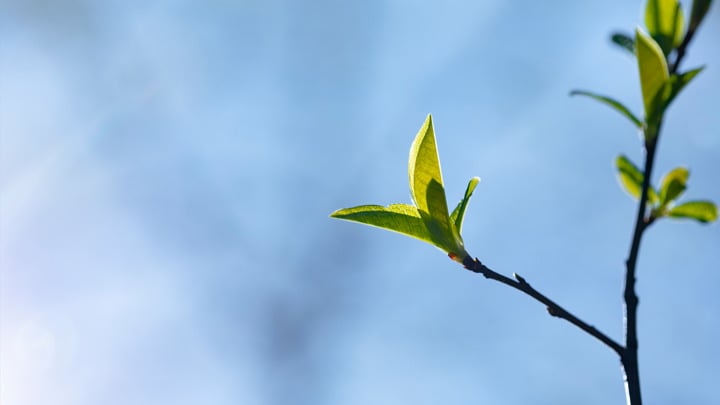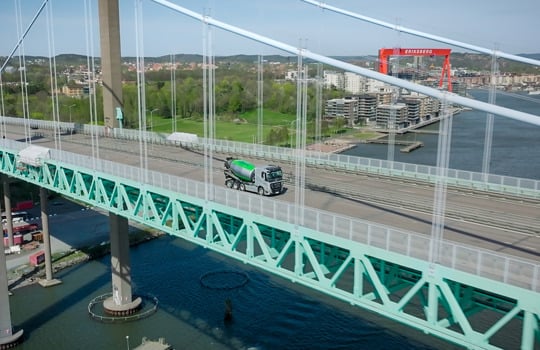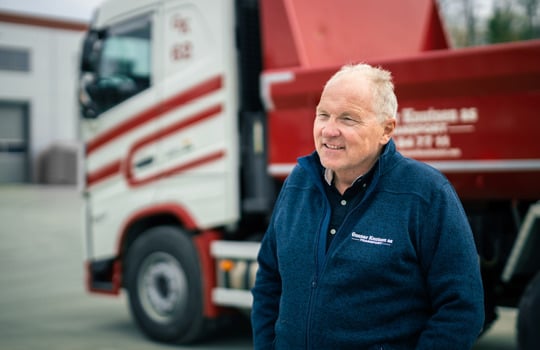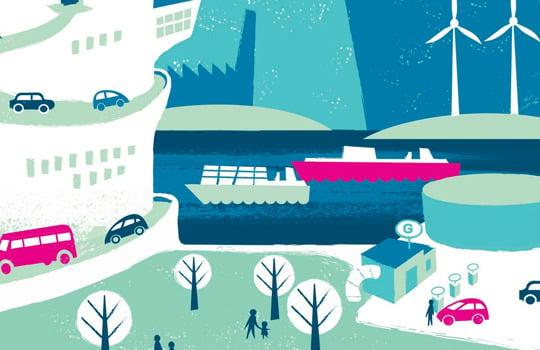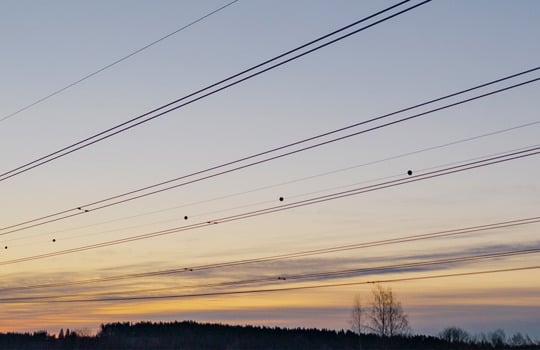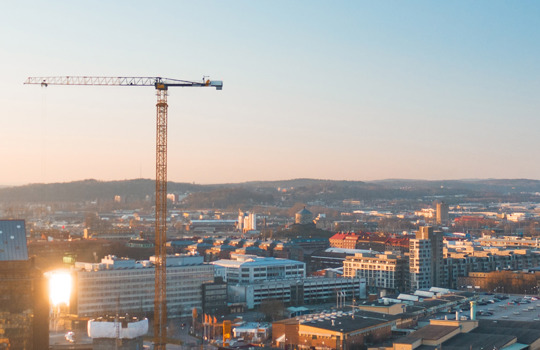Gasum in brief
Gasum is a Nordic energy company. We are an expert in the Nordic gas sector and energy markets. Together with our partners, we are taking important steps towards a carbon-neutral future on land and at sea.
We provide cleaner energy for industrial as well as road and maritime transport needs. Our aim is low-emission mobility of people and goods.


